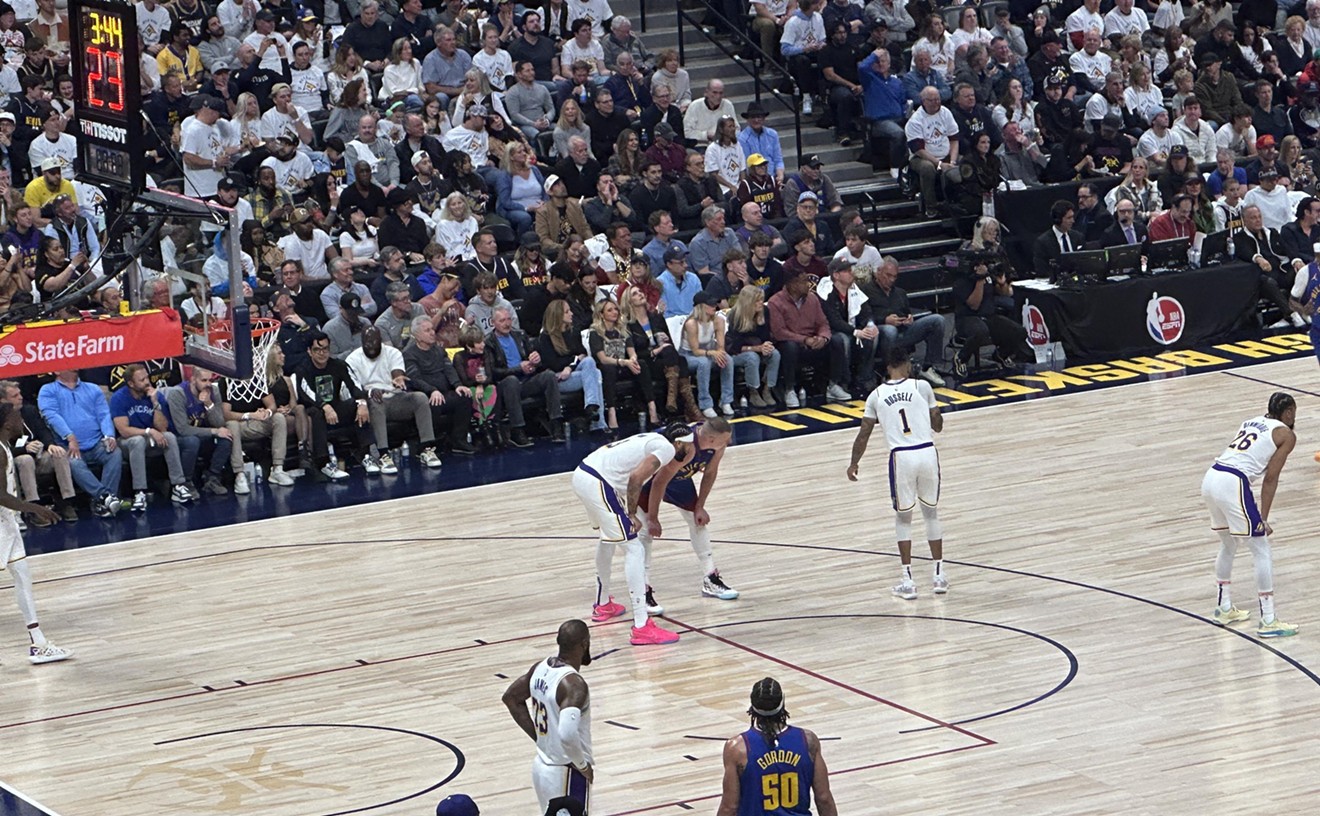David Hallman, Supervisor at the Hiawatha Davis Recreation Center Hallman's first experiences with the Holly was as a kid, taking a break from playing ball at the Skyland Rec Center to grab some grub from the Capre Chicken at the then-busy shopping center. When he returned decades later to run the rec center, now renamed the Hiawatha Davis Recreation Center, he found the mall overrun with gangs and crime. Not that much of it threatened the rec center, which seemed almost to be sacred ground. In the six years Hallman's been at Hiawatha, he's only had complain about graffiti attacks two or three times, compared to the almost weekly vandalism incidents he was used to when he worked at the Swansea Recreation Center in Elyria.
"We are in some kind of zone that they respect," says Hallman of local gang members. "I think a lot of it has to do with the fact that these are neighborhood kids, and they understand what happens here and the people who are involved. They know the people inside really do care about the community."
There does seem to be something special about the rec center, one of the few bright spots in the area. A massive renovation and renaming in 2000 seemed to increase the potential for a place that had already churned out superstars like local kid turned NBA All-Star Chauncey Billups. The Colorado Flyers, its celebrated track program, boasts many statewide track records. Now the Flyers have grown to include a volleyball program -- one of the few in the inner city -- that's taking the Colorado storm. There are many other success stories here, too, from packed basketball courts to a thriving senior community to the Denver Grays, a new baseball programmed named after one of the old Negro League teams.
While Hallman is proud of the neighborhood opportunities the rec center provides, he wishes the city would do more to insure northeast Park Hill had more resources like Hiawatha. "It's discouraging to see the disproportionate funding," he says. "You see this huge, top-of-the-line, state-of-the-art facility they are going to be building in Stapleton, with probably no additional funds coming in around here. When you talk about equity, that has to have meaning. To me, this rec center is one of the few things around here that provides an equitable resource for the community."
Deloris Wilson, property owner Wilson tends to get a lot of flack from the community for the ramshackle businesses she owns along the block just south of the Holly, a strip that includes an auto shop, a convenience store and the Horizon, a one-time family restaurant turned dive bar. Once the Holly burned down, neighbors say gang members -- along with drug dealing and drive-bys -- moved across the street to Wilson's property, with the owner doing little to stop it.
But that's not the case, says Wilson. According to her, she's done what she can to curb a problem that's way bigger than her property. "The police haven't been able to deal with it -- what can I do?" she says. "You run them off your property and they run across the street, then they come back." Plus she can't run everybody off her property. There wouldn't be any customers left.
She's tried to play a positive role in the community, she says, noting that she recently refused to lease one of her storefronts to a marijuana dispensary.
In her eyes, none of that seemed to matter to community members when they successfully lobbied to keep the owner of the former liquor store at the Holly -- a beacon for criminal activity -- from reopening his store in one of Wilson's storefronts. "This man, he lost his business in the fire," she says. "People need to get their own affairs in order before getting into other people's business."
As for future plans for the Holly, don't expect her to get too involved. "Look, I can't go over there and run those businesses," she says. "I have my own businesses to run. Whatever they put up over there, that's there business."
Taliah Abdullah, Senior Librarian at the Pauline Robinson Library Abdullah feels isolated from most of the negative elements around the Holly, ensconced as she is in Pauline Robinson Library, which opened in 1995 at the southeast corner of the block and bearing the name of Denver's first African-American librarian.
But that hasn't stopped her and her staff from trying to find better outlets for those who may be tempted by the gangs and crime. She figures the after-school program the library now runs, which features everything from arts-and-crafts classes and exercise programs to homework help and field trips, serves fifty to sixty kids daily, and double that in the summer. It's getting harder to help all the kids, though, since slashed city budgets means the library is now only open Monday through Thursday.
Abdullah believes the arson attack at the Holly was a blessing in disguise. A few weeks after the fire, she says attendance at the library began to increase as crime drifted away -- although eventually it seemed that a lot of that crime settled in across the street around Wilson's businesses.
In the shopping center's place, she'd like to see much-needed community resources, like a space for teens, a community gathering place and a real workforce center beyond just the eight overused computers in the library. To make that happen, Abdullah believes the wider neighborhood has to get involved with the rebuilding, not just the older generation, but younger community members like her and Terrance Roberts, the former Blood turned anti-gang activist.
"Where is everybody else in our generation?" she asks. "At some point, you have to proactive, rather than reactive."










